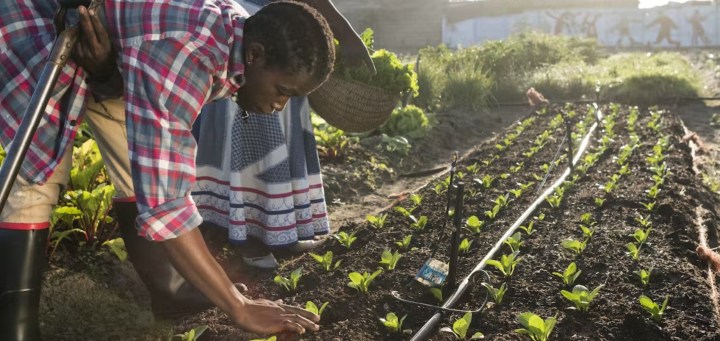SPONSORED CONTENT
COP27: Africa takes a step forward for climate justice

Absa’s Group Chief Strategy and Sustainability Officer Punki Modise attended the 27th Conference of the Parties of the UNFCCC, or COP27, which took place from 6–18 November in Sharm el-Sheikh, Egypt. This editorial is a view of the key themes and events that transpired.
As the reality of climate change sinks in, and the need for concrete, tangible interventions overwhelms the political utility of platitudes and empty promises, it becomes increasingly difficult to reach a global consensus on what ought to be done. This was reflected in the often fraught negotiations that took place at COP27.
The conference took place against a backdrop of global geopolitical instability, extreme weather events, and widely divergent expectations of what a successful conference should entail. More than 90 heads of state and 35 000 delegates from 190 countries attended the conference, seeking agreement on policies to limit the rise of global temperature and mitigate the effects of climate change.
The complexity of bridging divergent agendas and interests to find common ground on a sensitive topic such as climate change meant that not every delegation walked away from the conference satisfied. It is already being framed as an inherently compromised event.
But in fact COP27 marked a necessary – and overdue – concession to pragmatism and the recognition that if we are to effectively mitigate the impact of climate change at a global scale we need to slowly reframe climate issues, especially in the context of human dignity.
In the first climate summit held on African soil since 2016, African nations made the case for climate justice. Africa is particularly vulnerable to the effects of climate change, including food insecurity, water availability, ill health and loss of biodiversity. As United Nations Secretary-General António Guterres put it, the continent “barely contributes to global greenhouse gas emissions, yet it is paying an outsized price.”
COP27 was arguably the African COP – with several developments geared towards enabling adaptation to climate impacts in African countries and other less developed countries. After decades of deadlocked negotiation, attendees finally reached a landmark agreement on a more pragmatic approach to compensating developing nations for the loss and damage caused by climate change, and committed to creating a financial support structure by COP28, which would include rapid access to insurance and disaster relief following droughts and floods.
This is a step in the right direction. It reflects a concrete acknowledgement from the world’s most powerful, that global warming will not affect everyone on earth equally, and that those most at risk are those least responsible, and those least able to respond effectively. But the deal is not perfect. At the moment it is a “half full bucket” which will need to be filled, and there are numerous obstacles still to be overcome before a fund is fully financed and operational.
A heartening aspect of the COP27 proceedings was the tangible influence of climate activists and civil-society organisations, particularly those led by young people, which provided impetus to the negotiations and resulted in real headway being made against goals. Young people were given greater prominence at COP27, with a youth-led Climate Forum and dedicated Children and Youth Pavilion.
Intergenerational justice is particularly pressing in Africa, which has the youngest population in the world. As a young African activist protesting outside the conference hall cried: “Our futures are being taken away from us!”
Absa’s commitment to building climate resilience
At Absa, one of the five key themes in our strategy is to be an active force for good in everything we do. This is not a concept we take lightly. It means that we have committed to actively contributing to creating inclusive, sustainable economic growth in Africa. It also means that we have committed to managing climate change and biodiversity risks and opportunities, among other things. A large part of my focus currently is in entrenching and inculcating our commitment to sustainability more deeply within the organisation.
In the face of a global crisis we need global coordination and decisive action. COP27 marked a turning point. People are not getting carried away by empty promises anymore. It is time for work. This can be frightening: promises bring comfort. But work brings results. While many laudable commitments were made at COP27, work now needs to be done to turn those commitments into action. DM/OBP

















Great to know Absa doesn’t have any investments in fossil fuel companies.